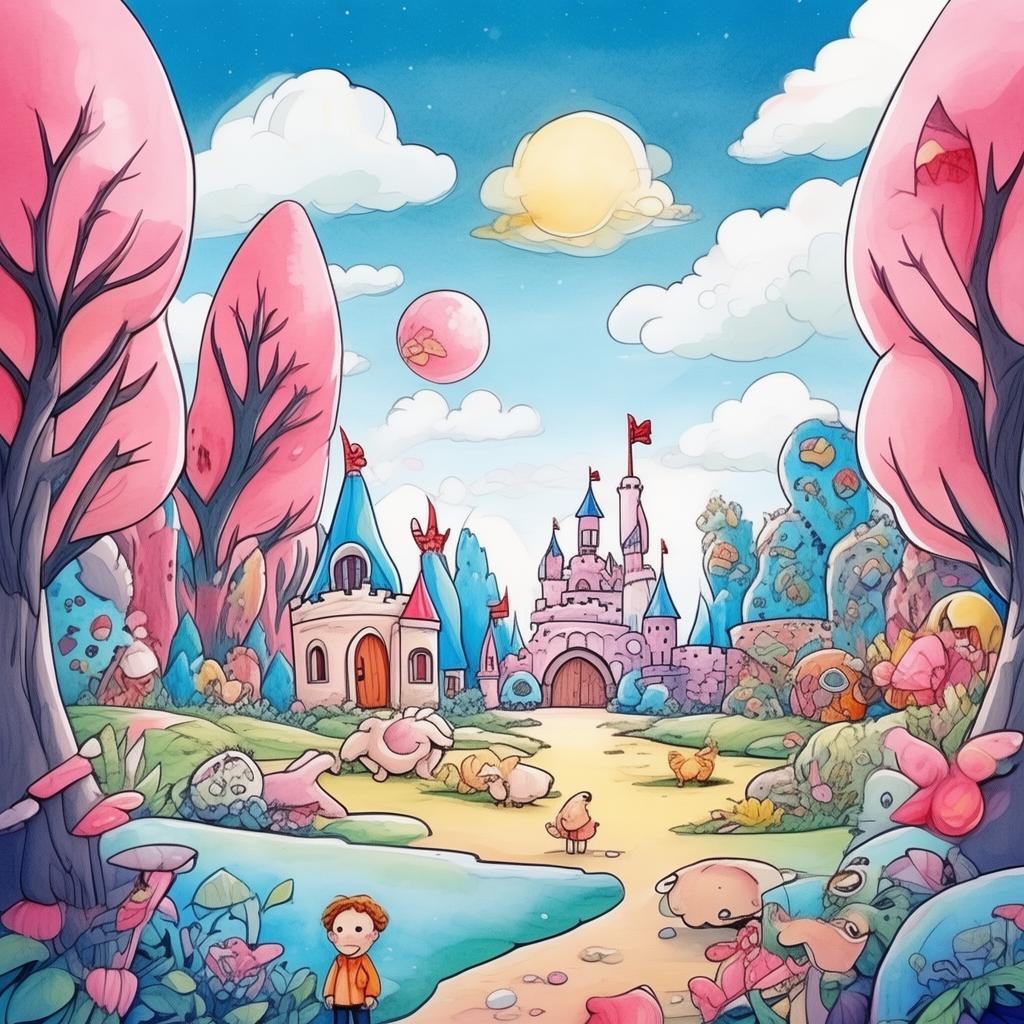Whispers of the Willow Tree: A Tale of Choice and Belonging
In the heart of a quaint village nestled between rolling hills and a whispering river, there lived a girl named Mei. Her village was bound by a set of traditions that had been passed down through generations. Every family had their roles to play, and each child knew their place from the moment they were born. Mei, however, felt an unspoken call that led her away from the expected path.
Every morning, as the sun climbed over the horizon, casting a golden glow on the rice fields, Mei would wander through the village, her eyes often drawn to the solitary willow tree standing at the edge of the river. It was old, its branches twisted like the fingers of a wise elder, and its roots seemed to delve deep into the earth, as if seeking answers to ancient secrets.
The village elders would often speak of the willow tree's significance, how it was a symbol of resilience and the eternal cycle of life. Yet, Mei felt no reverence; instead, she felt a sense of comfort and belonging that the willow seemed to offer. She often sat beneath its branches, her mind wandering in the silence, listening to the soft rustle of leaves that whispered tales of the world beyond the village.
One day, as Mei sat under the willow, she heard a voice, soft and familiar. "Mei, you must not follow this path," it said. She looked around, but no one was there. She thought it might have been the wind, but the voice was distinct, and it spoke to her heart.
"Your place is with the people, Mei. You must uphold the traditions that have been set before you," the voice echoed in her mind. But Mei's heart knew differently. She loved her village, but she also felt a restlessness that yearned for something more.

As the days passed, Mei's secret visits to the willow grew more frequent. She would listen to the tree, as if it were a living creature, speaking to her of the vast world beyond the village's walls. The tree seemed to understand her yearning for freedom, for something that felt right to her own soul.
One evening, as Mei was returning to the village, she was met by her father, a stern man who had always believed in the importance of tradition. "Mei, you know the rules. You must follow them. You cannot run away from your duties," he said, his voice firm but tinged with concern.
Mei looked into her father's eyes and felt the weight of his expectations. She knew she had to make a choice. "Dad," she began, her voice barely above a whisper, "I have something to show you." She led him to the willow tree, where she had been meeting her silent companion.
The father stood in silence, looking at the tree, his expression one of confusion mixed with a hint of respect. "This tree... it speaks to you?" he asked, his voice trembling slightly.
"Yes, Dad. It speaks to me, and it tells me that there is more to life than these walls. I want to see the world, to learn and grow," Mei said, her voice filled with determination.
Her father sighed, a rare display of emotion from him. "You are my daughter, Mei. You are a part of this village, but you must choose wisely. The world outside is vast and dangerous. Are you sure this is what you want?"
Mei nodded, her eyes resolute. "Yes, Dad. I am sure."
That night, as the village slept, Mei packed her few belongings and left the village in the early hours of dawn. She traveled through forests and across rivers, her heart filled with a mix of fear and excitement. She knew that her choice had been difficult for her father, but she also knew that her soul needed to grow.
The willow tree, watching over her, seemed to smile with its twisted branches. Mei felt a sense of peace, knowing that she had chosen her own path, one that felt right in her heart.
As Mei ventured further from the village, she encountered new people, new cultures, and new ways of life. She learned to speak different languages, to appreciate the beauty of diverse traditions, and to understand the importance of her own roots. Yet, she never forgot the willow tree that had whispered to her of possibility.
Years passed, and Mei returned to her village, a woman with stories to tell and a heart full of love. She found that the village had changed, that the old traditions were still there, but they had softened, allowing for a new kind of belonging. Mei helped to bridge the gap between the old and the new, teaching the younger generation that choice and comfort could coexist with tradition and belonging.
And beneath the willow tree, where Mei had once sat in silent contemplation, a new generation gathered, listening to the rustle of leaves and feeling the call of the world beyond the village's walls. Mei had chosen comfort over tradition, and in doing so, she had found her true belonging.
✨ Original Statement ✨
All articles published on this website (including but not limited to text, images, videos, and other content) are original or authorized for reposting and are protected by relevant laws. Without the explicit written permission of this website, no individual or organization may copy, modify, repost, or use the content for commercial purposes.
If you need to quote or cooperate, please contact this site for authorization. We reserve the right to pursue legal responsibility for any unauthorized use.
Hereby declared.









